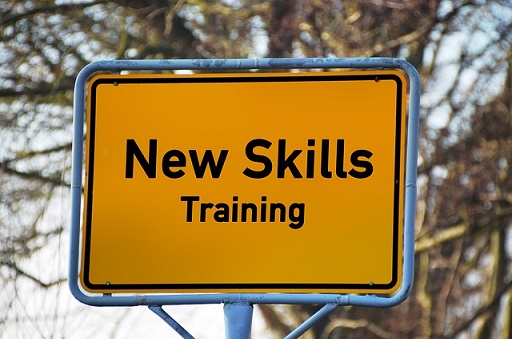How To Create A Blog For School Students
Are you a high school student interested in getting an internship? Internships are a great way to learn about different careers, as well as get experience that you can include on your resume and college applications. Read on to learn what the benefits of internships are, what work you'll be doing, how to find a great internship for you, and how to get the most out of your internship experience. An internship is a short-term job that allows the worker, or intern, to gain introductory experience in a certain profession.As an intern, you will work for a company or organization and gain hands-on and practical experience you can use for future jobs. There can be a lot of variation between internships. They may be part-time or full-time, paid or unpaid, take place over the summer or during the school year, and last anywhere from a few weeks to a year or more.Because internships are designed for people with little or no experience in a particular career field, most interns are students or recent college graduates. Your duties and responsibilities during your internship will depend a lot on where you work. You may be calling prospective clients for a business, conducting a research experiment in a lab, leading tours at an art gallery, or one of many other options. Typically, you will spend your internship doing work similar to that of an entry-level employee at the organization.You may also do work related to several jobs in order to learn more about different career paths. During your internship, you may work withemployees, customers, other interns, on your own, or a combination of these.Typically you will have a supervisor who will act as your boss, assign you work, and make sure you feel comfortable at your internship. There are multiple reasons to pursue an internship in high school; I've listed a few of the most important benefits below. One of the most important benefits of doing an internship is that you'll gain skills and experience that you can use for future jobs and classes.Completing an internship that relates to a job you may want to have will help you get relevant work experience and a better chance of getting a full-time job in that field in the future. The experiences and skills you gain during your internship can also help you in future classes as well. Don't expect something new every minute of your internship; most of them include some less interesting duties, such as answering phones and sorting mail. However, every intern should come away with some new skills and knowledge as a result of their internship. Doing an internship is a great, low-risk way to learn about different jobs because they provide hands-on experience and the opportunity to observe many different aspects of a career. While doing your internship, you may learn that you don't really enjoy a particular job that you thought you'd love, or you may discover a job you initially didn't find interesting is actually a great fit for you. It's much better to figure these things out during a high school internship rather than waiting until you've finished college and started working to discover that the jobs you spent four years and thousands of dollars preparing for aren't a good fit for you. When I was in high school, I loved history and archaeology, and my dream job was to be an archaeologist. As a junior, I had a short internship that included surveying and excavating a field site with archaeologists. While it was a great opportunity to have, it taught me that being an archaeologist is a lot different than I imagined and not something I would enjoy as a career. Because I found this out in high school, I was able to research other careers and majors and have a better sense of what I wanted to do by the time I started college. Internships are great experiences to include on job and college applications. Completing an internship, especially as a high school student, shows that you are a hard worker, motivated, and interested in learning new things. These are all qualities that employers and schools like to see in applicants. If your internship is paid, you also have the benefit of earning a paycheck, which I'm sure you know is a great benefit and can help you put money away for college. The unfortunate reality is that many internships, particularly those for high school students, aren't paid. Many companies try to save costs by not paying interns, and high school interns are particularly likely to be unpaid because they often need a lot of training and can only do entry-level work, at least at the beginning of the internship. However, even if an internship is unpaid, you may still want to consider doing it. Why would you want to work for free?Great internships can teach you as much or more than many of the classes you take. You'll learn what certain careers involve, gain hands-on experience, work with professionals, and learn new skills. If the internship is in a field you find interesting or want to pursue a career in one day, those benefits may make up for the lack of a paycheck.You may also be able to get academic credit for an unpaid internship, so even if you aren't earning money, your internship can count as a class on your high school transcript. If you are trying to earn a lot of money now or can't find an internship you are really excited about, then it might not be the best idea to do an unpaid internship because it may only frustrate you and make your schedule busier. However, if you see an internship that seems relevant and interesting, you may want to consider it, even if it's unpaid. Unpaid internships can still have many benefits, and it's a good idea to consider unpaid work now, while you're likely still living with your parents and don't have student loans to pay off than to wait until college or after college graduation to do your first (and likely unpaid) internship. Doing an unpaid internship now can help you get a paid job or internship in the future because you will already have some experience. Just because an internship doesn't fill up your piggy bank doesn't mean you should automatically discount it. It has become more and more popular for high school students to do internships, so there are a lot of resources available. However, the majority of internships are still primarily for college students, so keep that in mind while searching. Below are three of the best places to start your search. Your high school may already have a program in place to help students find internships, or they may have a list of places where previous students have completed internships and enjoyed them. Talk to your academic counselor to learn what information your school has and if they can help you organize an internship. Another way to find internships is to ask directly at companies or organizations where you'd like to intern. Create a resume and be ready to talk about yourself, your interests, and what you'd like to learn at an internship. Then contact the company (in-person, by phone, or through e-mail), and ask if they offer internships for high school students and how you can apply. If they don't, and you're still interested in learning more about working there, ask if they offer shorter-term opportunities such as job shadowing. Try searching "internships near [your town]" or "internships in [field you're interested in, such as medicine or business]." Because many internships are for college students, you should try the other two options first because you may not be eligible for many of the internships you find online. You may also want to search "internships for high school students" to increase your chances of finding an internship you can apply for. You can find a lot of opportunities and information about internships online, but you also have to be careful about internships advertised on the internet. Some, especially if they are a company that specializes in setting up unpaid internships, exist only to make money for themselves and may not be as concerned about the quality of the internships they are offering. In general, be very wary of companies that charge a fee to help you find an internship. While many internships for high school students are unpaid, you should not have to pay large amounts of money in order to find one. Unfortunately, as interning becomes more popular among students, many companies have begun offering unpaid "internships" as a way to get free work. Many of these internships offer no compensation and little relevant experience; instead interns spend their time performing repetitive tasks or busywork that teaches few or no skills. In order to avoid these situations, research internships carefully before agreeing to one (especially ones you find on the internet), and talk to people at the organization to get answers to the following questions. Even if the intern's main responsibilities are stated on the job application or another resource, you should still ask your interviewer or potential supervisor to describe the day-to-day work because sometimes what they say can differ a lot from what is written. Listen carefully to their answers, and ask for clarification if necessary. Asking questions like "How will I spend most of my time?" or "What will be my main responsibilities as an intern?" can help you learn more about the internship and if the work you'll be doing is relevant to your interests. If there is work you are particularly interested in, ask if you'll have an opportunity to try it and about how much of your time will be spent on that duty. For example, if you are applying for an internship at a science lab and really want to learn more about microbiology and conducting different scientific tests, make sure you won't be spending all your time cleaning beakers before you agree to an internship. Expect to do some busywork during your internship, but it should also include some work that you find interesting and beneficial. Even if you are not getting paid, you should still be benefiting in some way. After all, you are putting in a lot of hard work as an intern, and the company you work for should repay you with more than just a line on your resume. Examples of benefits that aren't monetary include receiving quality training, learning new skills, getting academic credit, getting a housing or transportation stipend, possibly being hired at the end of the internship, or being introduced to workers who may be able to help you find a job in the future. If you aren't sure how you'll be compensated, don't be afraid to ask for clarification. Asking your interviewer or contact at the company, "What are the ways I will benefit from doing this internship?" or something similar will show that you are direct and interested in making the most of your experience. Some companies try to get as many hours out of their interns as possible, so make sure you and your employer are on the same page. There should be no confusion about this before you begin working. Your employer should provide a document that states how many hours you are expected to work a week and how many weeks you will be working for. If they don't, ask for one before you begin working.Having this settled before you start your internship will reduce the possibility of you working long, unexpected hours and feeling like you are being taken advantage of. After you have researched internships, applied to those that interest you, and been offered a position, it's time to start working! Take the following steps to make sure you are getting as much out of your internship as possible. For most internships, the more effort you put in, the more benefits you get.Make it a goal to learn as much as you can during your internship. Even if a particular duty doesn't seem that exciting, do your best at it. You never know, you may find it interesting or use those skills down the road. Be proactive. If you don't have enough work to do, ask your supervisor what other things you can help with. This will help you learn more and show your boss that you are motivated and a hard worker. If you don't know how to do something or need more information, ask! As an intern, you aren't expected to know everything, and it's much better to ask for help than to try to do something on your own and potentially make a big mistake. An internship is an opportunity for you to gain skills and knowledge that you think will benefit you in the future, so you want to make sure that at least part of what you are learning is applicable and interesting. You likely won't be able to decide everything you get to do, but if there is a certain job you want to try or skill you want to learn, mention this to your supervisor. They may be able to give you some roles that require that skill or put you in contact with people who know a lot about that field and can answer your questions. Remember, both the company and you should be benefiting from this internship. One major benefit to internships is that you can make professional connections that may help you get a job in the future.If people know you and like the work you do, they will be more willing to hire you one day, even if they move to a different company. While at your internship, make it a point to speak with as many people as you can. You can also use your new contacts to get advice and learn more about a particular career field by asking them questions like why they chose this job, what they like about it, what they dislike, and if they have any advice for you as you finish high school and begin college. Internships are a great way for high school students to get experience, gain new skills, and learn more about different jobs and career fields. Internships can involve many duties and responsibilities, but, in general, they give the intern entry-level experience in a certain job or profession. Even unpaid internships can benefit you by giving you work experience, new skills, and a better idea of the type of career you want to have. To find an internship, talk to your academic adviser, contact places where you'd like to work, or search online. Before agreeing to an internship, make sure you research it carefully so you understand what you'll be doing. Want to learn more about a certain career but don't have the time to commit to an internship? Job shadowing may be just what you're looking for! Check out our complete guide to job shadowing. Wondering if you should get a job? We have guides to help you decide if getting a job is the right choice for you as well as the eight best jobs for teenagers. Community service is also a great way to get experience and learn about different jobs . Read our guide to learn what community service is and how it can benefit you. Want to improve your SAT score by 160 points or your ACT score by 4 points?We've written a guide for each test about the top 5 strategies you must be using to have a shot at improving your score. Download it for free now: 
What Is an Internship?
What Do You Do at an Internship?
What Are the Benefits of Internships?
Gain Experience and Skills

Learn About Different Careers
Can Strengthen Your Resume and College Applications
Potential Way to Earn Money
Should You Do an Internship If It's Unpaid?

Where to Find High School Internships
Your School
Places Where You'd Like to Work
Internet Search
What Questions Should You Ask Before Accepting an Internship?
What Duties Will the Intern Do?
How Will Interns Be Compensated?
How Much Are Interns Expected to Work?

How Can You Make the Most of Your High School Internship?
Learn as Much as You Can
Discuss What You'd Like to Learn
Make Personal Connections
Summary
What's Next?



About the Author
Christine graduated from Michigan State University with degrees in Environmental Biology and Geography and received her Master's from Duke University. In high school she scored in the 99th percentile on the SAT and was named a National Merit Finalist. She has taught English and biology in several countries.
How To Create A Blog For School Students
Source: https://blog.prepscholar.com/internships-for-high-school-students
Posted by: smithsuffee.blogspot.com

0 Response to "How To Create A Blog For School Students"
Post a Comment